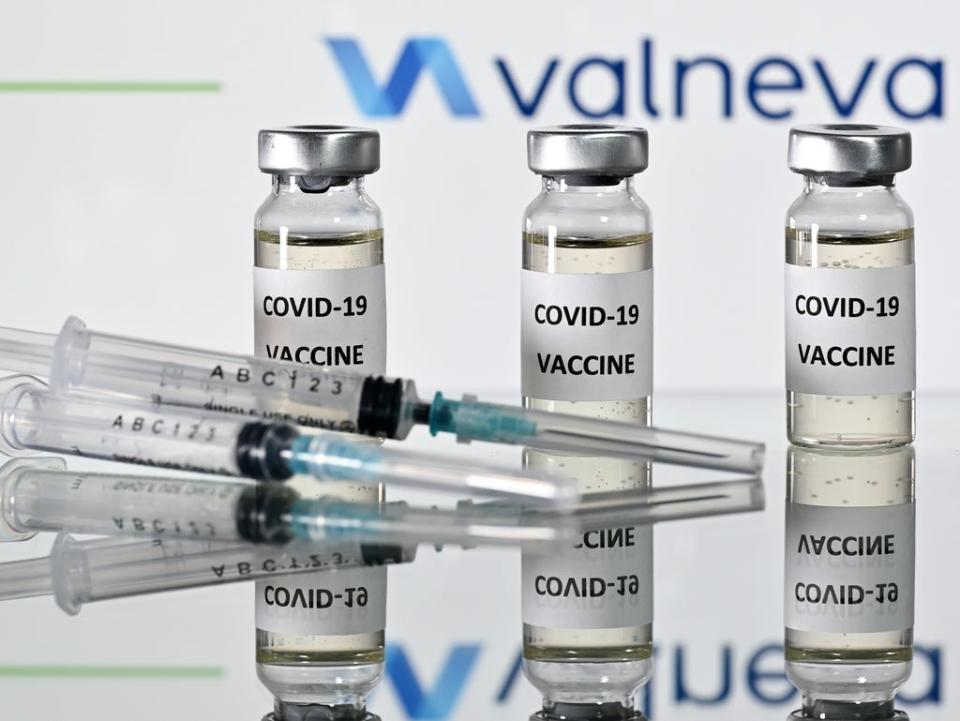Valneva vaccine generates stronger immune response than AstraZeneca jab, French firm says

The Covid-19 vaccine developed by Valneva, whose contract to supply millions of doses to the UK was scrapped last month, generates a stronger immune response than the Oxford/AstraZeneca jab, the French pharmaceutical firm has said.
Data from Valneva’s large-scale phase three trial showed that its vaccine produced a higher level of neutralising antibodies compared to those who had received the AstraZeneca jab as part of the study.
The vaccine also induced a broad T-cell response, a part of the immune system believed to be involved in maintaining long-term immunity, and generated fewer side effects among recipients, Valneva said. No serious adverse events were reported across the trial.
Adam Finn, professor of paediatrics at the University of Bristol and chief investigator of the trial, said the immune responses were “both impressive and extremely encouraging”.
Last month, the government terminated its deal with Valneva, which would have seen 100 million doses of the vaccine manufactured for the UK at a Scottish site in Livingston.
Health secretary Sajid Javid told MPs it had been “clear” the vaccine “would not get approval” by the Medicines and Healthcare products Regulatory Agency (MHRA) in the UK.
Valneva said the government had served notice over allegations of a breach of the agreement, which it "strenuously" denied.
Its phase three trial recruited 4,012 people across 26 trial sites in the UK. The number of Covid-19 cases reported among participants were similar between those given the AstraZeneca or Valneva vaccine, the firm said.
Watch: Covid-19 vaccines - Is French medical research failing?
Valneva added that the complete absence of any severe Covid-19 cases may suggest that both vaccines used in the study prevented severe Covid-19 caused by circulating variants, mainly the Delta variant.
The company is seeking approval from the MHRA and Europe’s own medicines regulator.
The Valneva vaccine is more traditional in design compared to the AstraZeneca, Moderna and Pfizer jabs.
Known as an “inactivated whole virus” vaccine, it contains genetic material from Sars-CoV-2 which has been destroyed so it cannot lead to infection and replication within the body.
However, the inactivation process preserves the structure of the virus’ spike protein, which helps the body identify the substance as a “foreign invader” and induces an immune response.
This technology is well-established and has been used in seasonal flu, hepatitis A, polio and rabies vaccines.
“This is a much more traditional approach to vaccine manufacture than the vaccines so far deployed in the UK, Europe and North America and these results suggest this vaccine candidate is on track to play an important role in overcoming the pandemic,” said Prof Finn.
Thomas Lingelbach, chief executive officer of Valneva, said: “These results confirm the advantages often associated with inactivated whole virus vaccines.
“We are committed to bringing our differentiated vaccine candidate to licensure as quickly as possible and continue to believe that we will be able to make an important contribution to the global fight against the Covid-19 pandemic.”
Watch: Do coronavirus vaccines affect fertility?

 Yahoo News
Yahoo News 